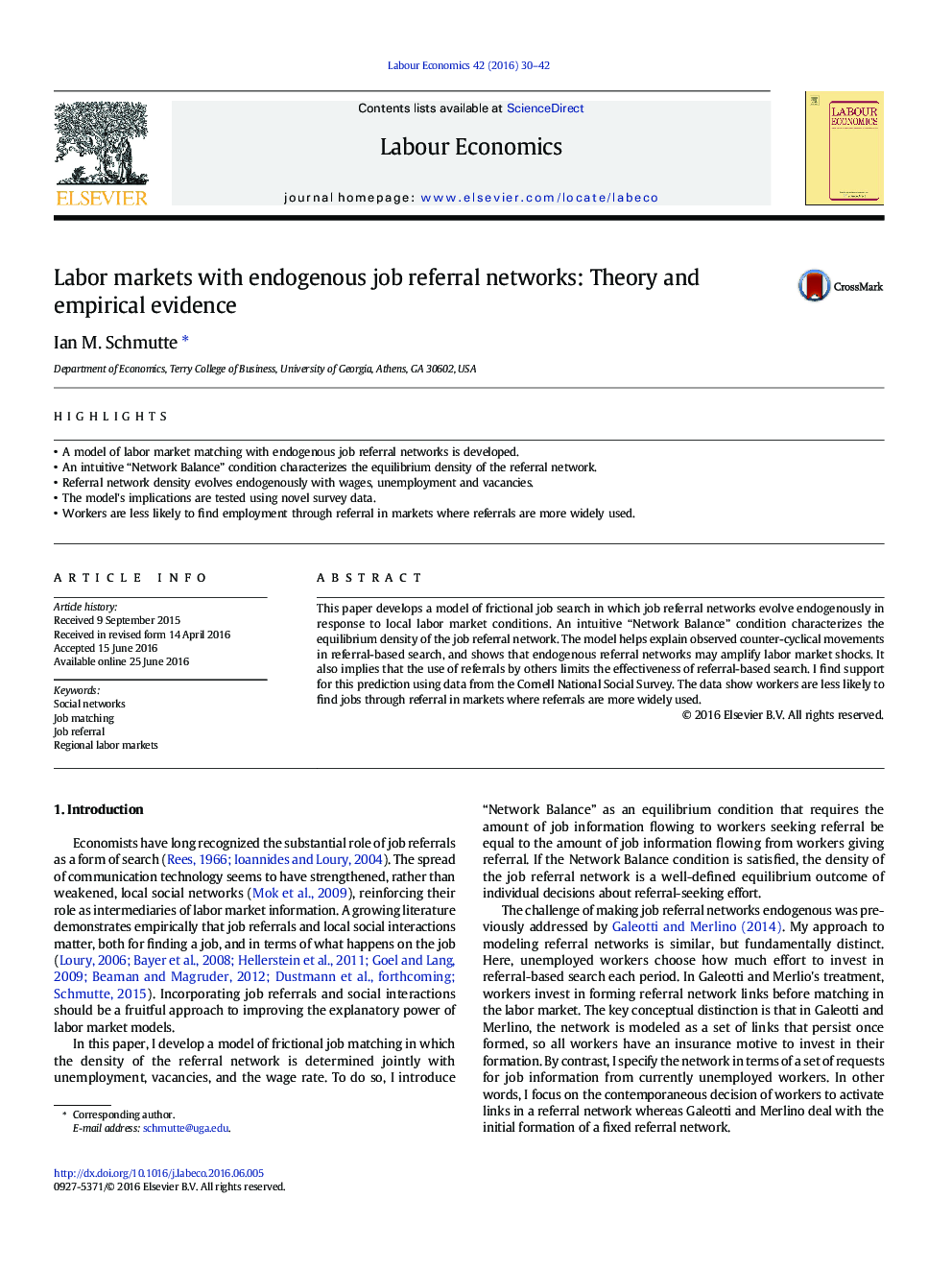| Article ID | Journal | Published Year | Pages | File Type |
|---|---|---|---|---|
| 972062 | Labour Economics | 2016 | 13 Pages |
•A model of labor market matching with endogenous job referral networks is developed.•An intuitive “Network Balance” condition characterizes the equilibrium density of the referral network.•Referral network density evolves endogenously with wages, unemployment and vacancies.•The model's implications are tested using novel survey data.•Workers are less likely to find employment through referral in markets where referrals are more widely used.
This paper develops a model of frictional job search in which job referral networks evolve endogenously in response to local labor market conditions. An intuitive “Network Balance” condition characterizes the equilibrium density of the job referral network. The model helps explain observed counter-cyclical movements in referral-based search, and shows that endogenous referral networks may amplify labor market shocks. It also implies that the use of referrals by others limits the effectiveness of referral-based search. I find support for this prediction using data from the Cornell National Social Survey. The data show workers are less likely to find jobs through referral in markets where referrals are more widely used.
